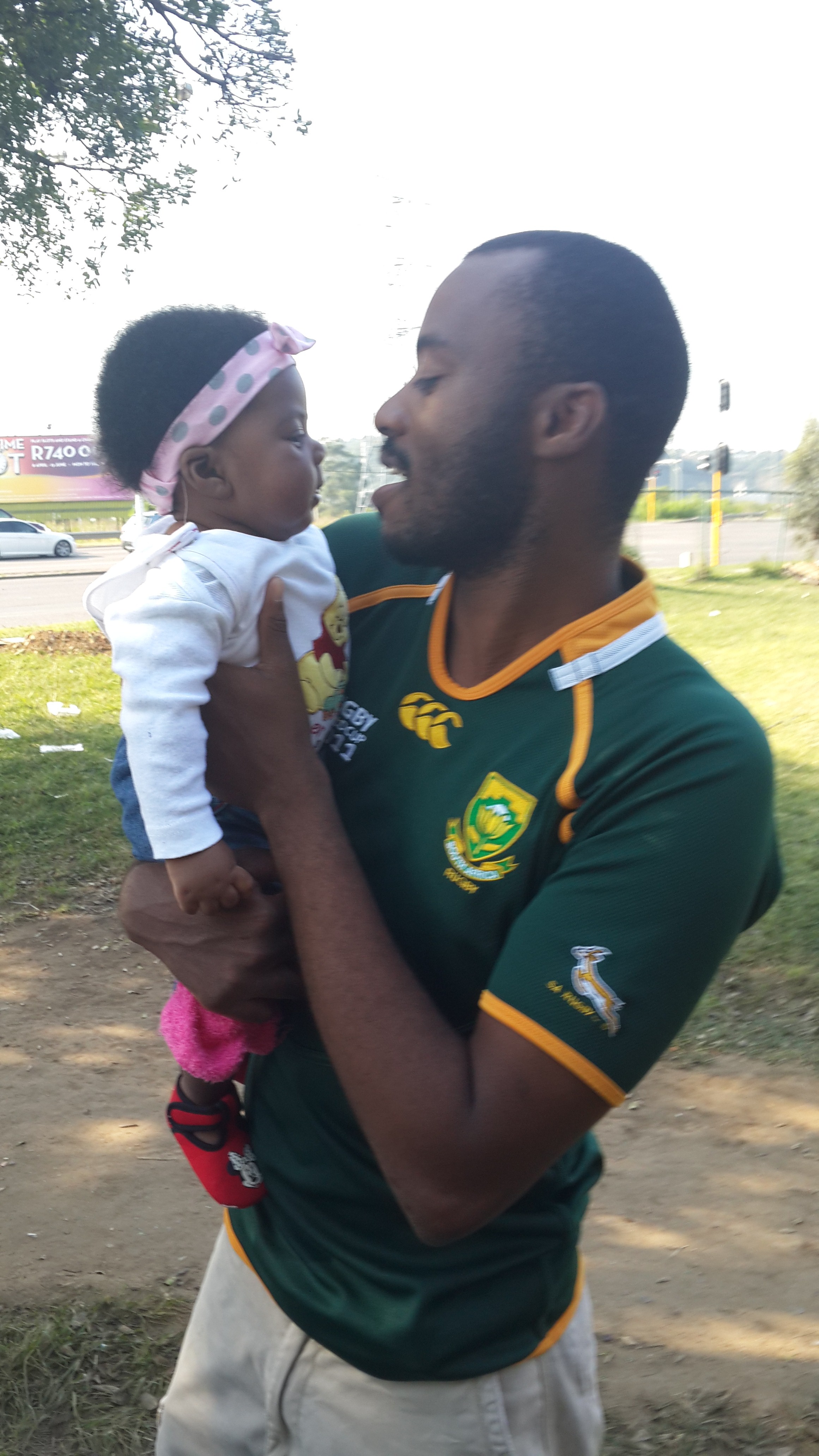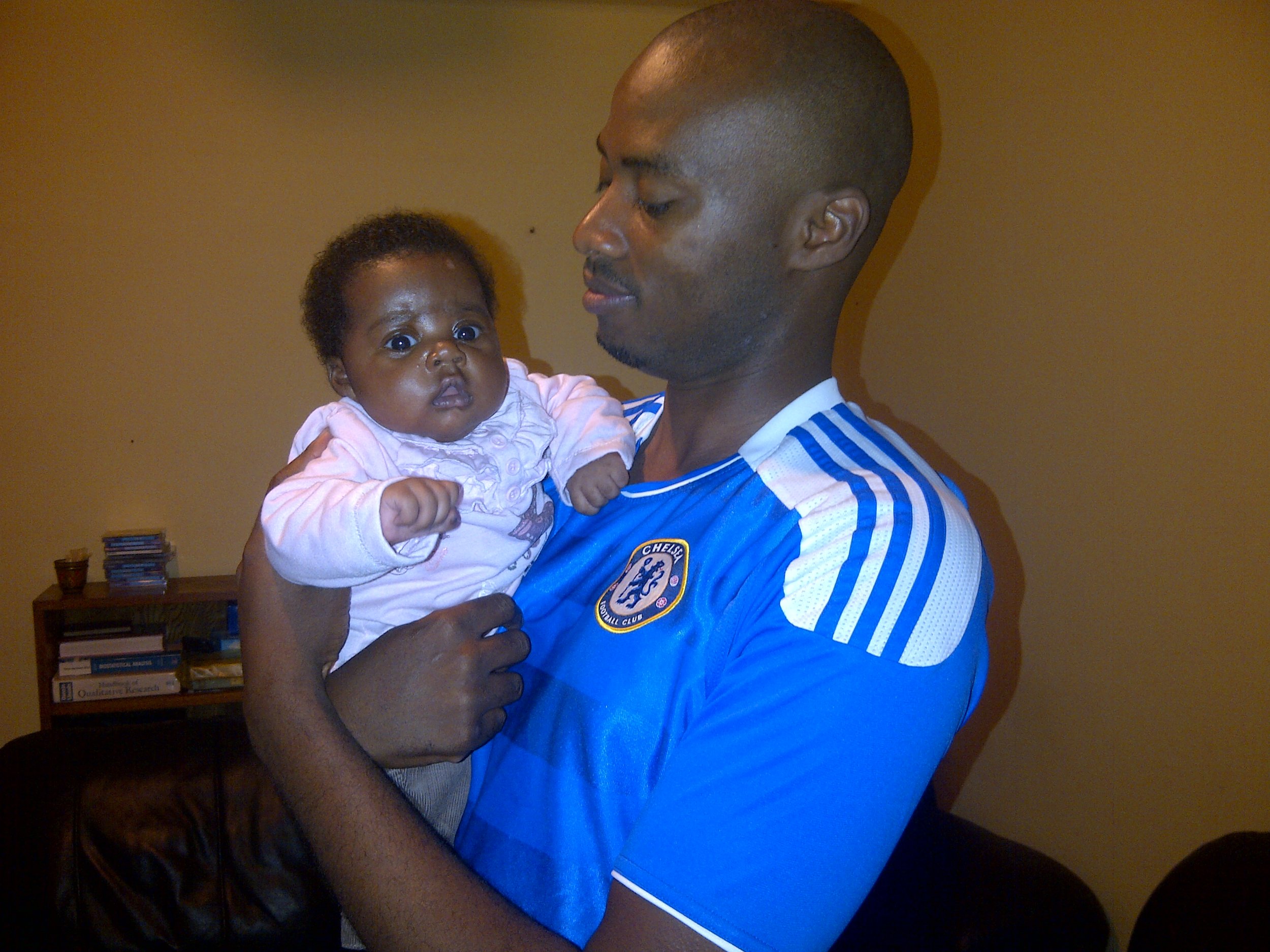Becoming a Father in Africa
 This Father's Day we asked Tawanda Makusha to share his thoughts on fatherhood. Tawanda recently completed the study, Father Involvement in Young Children's Care and Education in Southern Africa. He's a a researcher at the Human Sciences Research Council (HSRC) in South Africa and recently became a father. He reflects on becoming a father and his work in this blog post.
This Father's Day we asked Tawanda Makusha to share his thoughts on fatherhood. Tawanda recently completed the study, Father Involvement in Young Children's Care and Education in Southern Africa. He's a a researcher at the Human Sciences Research Council (HSRC) in South Africa and recently became a father. He reflects on becoming a father and his work in this blog post.
Becoming a father in Africa By Tawanda Makusha
I’m a young Shona man, a Zimbabwean working in South Africa. When I embarked on my Doctoral studies in 2010, focusing on the role of men in supporting children, I never imagined being a father. My interest in studying fatherhood stemmed from a conversation I had with my supervisor, Professor Linda Richter about the relationship I had with my father when he was alive.
Until June 2012, when I discovered I was going to be a father, I knew nothing about being a father. All I knew was based on the responses of children, women and men in my PhD work to my questions about fatherhood and my experiences with my father. However, things were about to take a turn…
On our first clinic appointment, Yabanathi, my partner, and I realized that our lives were about to change dramatically. We were anxious, scared and worried. I also had a lot of questions for myself. How do I show my Yabanathi that I am there and will always be there for her and our baby? How am I going to break this news to my mother and how will she react? Will I be a good dad? Will I be like my father who was present only as a financial provider? What would Yabanathi’s family say? What would be their demands? As time went on some of these questions were addressed somehow, while others will take a lifetime to answer.
The most exciting event that took place before Tadiwa, my daughter, was born was going to negotiate and pay inhlawulo (damages). As Yabanathi and I are not married, this is an acknowledgement of paternity. I had to find someone who understood the Xhosa culture very well because Yabanathi is Xhosa and there are obvious cultural differences in our background. With time I would also start reading and printing, for both Yabanathi and I, lots of articles about what mothers should do and experience during pregnancy. For example, information on how many times a baby kicks during the day and during the night and we both monitored these. Everything I have read on child development found relevance in my life. Tadiwa changed my life, she gave me meaning.
I started noticing a lot of baby stuff in stores. The feeling of “expecting” was so exciting. I just couldn’t wait to be a dad. It was like an obsession… but I must say the support system I had also helped. I had expected people to be angry and disappointed when they were given the news but I got a completely opposite reaction. It stopped being and Tawanda and Yabanathi’s pregnancy. Everyone in my network now expected a baby girl to be born. This really helped.
Yabanathi went into labour on the 15th of February 2013 at around 22h00, and as our doctor had predicted Tadiwa was born on the 16th of February 2013. I shed a tear when I first held her in my arms. This was a feeling of joy, fulfillment and excitement. I became a father. It was like a dream. Although I do not live with Tadiwa and her mother because I have not paid lobola (bride price) for Yabanathi, I visit them every weekend and make sure that I spend most of that time playing with our daughter. Providing financially for her has given me a sense of responsibility and accountability. I have become responsible for someone other than myself, and my decisions and actions not only affect me but affect my child, my partner and the relationship we have. This is my story and if I could turn back the hands of time there is nothing I would change.
I acknowledge that fathering situations are different but I would try and urge every man to take responsibility for their children. Families and societies also need to support men. Men need to be assured that they can be good fathers even when they are poor. While financial provision is important, it is only one aspect of being a good father. Men need to love, care and support their children and their children’s mothers even when they are separated or divorced. To all men: “Acknowledge paternity, know your children and accept the responsibility that comes with being a father”. It’s been good for me, and everything I read about fatherhood and the men I speak to, attests to the fact that fatherhood is good for most men.
Also see below some of the key messages from the MenCare Global Conference that I attended from the 10th to the 14th of June 2013:
- Fathers need to be present and support their partners during pregnancy, at birth and after birth.
- Fathers need to move away from being only “ATM dads” to being present, nurturant, loving and engaged.
- Parents need to avoid gender socializations of children that perpetuate dominant forms of masculinities that lead men to think that they are superior to women or women are there for the purpose of serving them.
- Engage men as caregivers is key to achieving gender equality and reducing intimate partner violence.
- Local, national and international groups who engage men and boys need to work collaboratively with women and child rights groups in sharing best practice principles that will assist in achieving gender equality.
- It is essentially important to engage with cultural and religious leaders on how to deconstruct cultural and faith practices which act as barriers for men (particularly fathers) to engage with their children.
Follow the proceeding of the MenCare Global Conference, On Facebook and Twitter: @MenCareGlobal
Happy Fathers Day, everyone.


